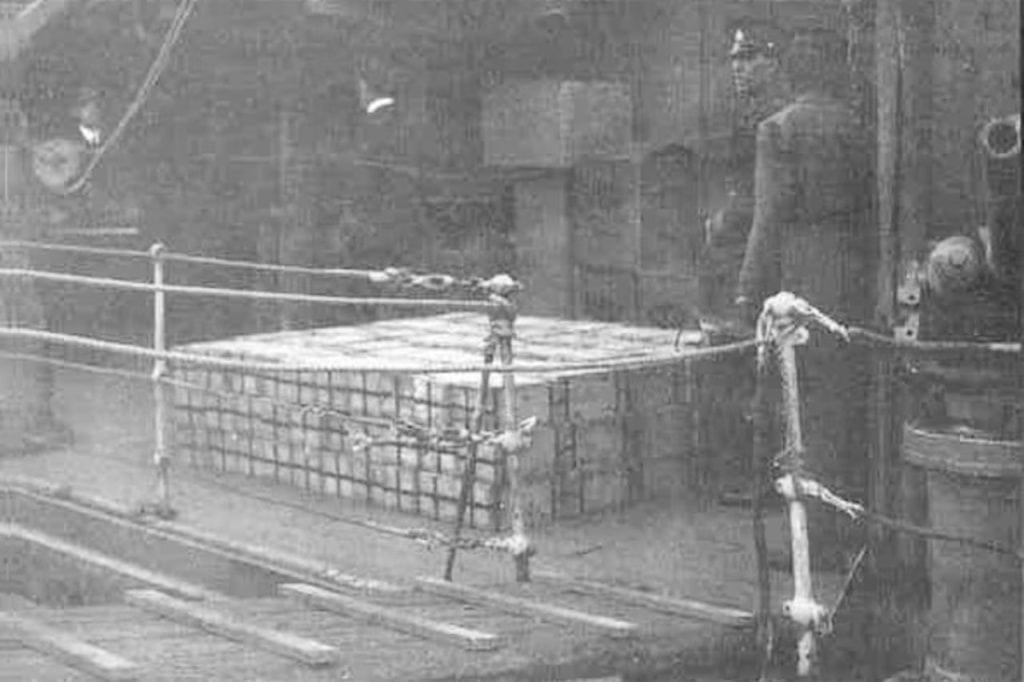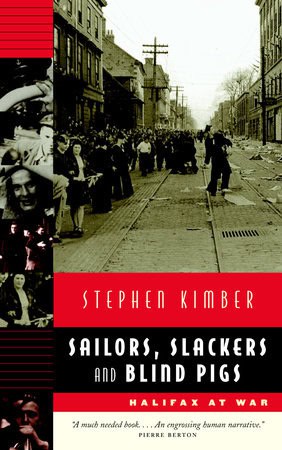
It was code-named Operation Fish, an audacious, top-secret World War II scheme to spirit Britain’s entire gold reserves across the U-boat-infested North Atlantic to Canada to keep them from falling into the hands of the Nazis. It would become the largest transfer of physical wealth in history, worth more than $200 billion today. If it had failed, it is possible, even likely, that the war would have ended very differently.
What follows is the behind-the-scenes story of one of the first gold shipments to arrive in Halifax. It’s excerpted from my 2003 nonfiction book, Sailors, Slackers, and Blind Pigs: Halifax at War.
Operation Fish is also a major plotline in my forthcoming World War II Mick Blackwell detective novel, Lies Lived, which will be published in October 2026.
No one could figure out what was really going on, let alone what any of it meant. Why had three of Britain’s best fighting ships been tied up alongside Halifax’s Ocean Terminals piers for two days offloading explosives from their ammunition lockers when they could be escorting a vital convoy back across the Atlantic? And why had their captains, who never took much interest in such routine matters as loading and unloading, personally supervised the movement of the boxes from their ships to a waiting train that seemed in such a hurry to be off that it was already belching smoke from its funnel while the unloading progressed? And why had civilians in bankers’ suits stood beside the captains, dutifully noting the numbers on the boxes — Z298, Z299, Z300. . . — then signing a receipt for each one. And why, finally, had a hundred or more gun-toting Mounties stood menacingly on the ships’ decks and wharves while the cargo was being transferred?
It wouldn’t have helped to ask the ships’ crews. They were as mystified as everyone else. More so, in fact.
Almost two weeks earlier, on Oct. 4, 1939. a month after Chamberlain declared war, the crews of the British battle cruisers Emerald, Enterprise and Cardoc had been mustered at Plymouth, England, and issued with white canvas tropical clothing. Captain Augustus Wallington Shelton Agar, the skipper of the Emerald, told his 650 crewmen they would be given a brief leave with their families before embarking on their new mission. A normally secretive sort, Agar surprised his men by telling them he had no objection if they told their loved ones they’d soon be frolicking in the tropics.
Twelve hours after the ship left Plymouth, however, the captain made an entry in the ship’s log: “Sailed for Halifax with Caradoc and Enterprise,” it stated simply.
What was going on? The ship’s gun lockers were invariably filled with munitions of one sort or another. But the captain didn’t usually oversee their loading. This time, he’d not only supervised personally, but he also hadn’t returned the locker key to its usual spot in the bulkhead cabinet where all the ship’s keys were kept. Instead, he put it in his pocket and kept it in his possession for the entire 10-day Atlantic crossing.
There was good reason for caution; the “explosives” were really two million pounds in gold bars being secretly shipped to Canada to buy arms and supplies from the United States under its Cash-and-Carry-only policy. (They weren’t the first; in the spring, shortly before the war began, the British had used a Royal visit to Canada as a cover to secretly spirit gold bullion out of England aboard the navy cruisers accompanying the King and Queen.)

This time, the British Admiralty not only misidentified the ships’ cargo to avoid detection but also concocted the elaborate subterfuge of issuing the crews with tropical gear in hopes that loose lips might leak the word to enemy agents, who would then transmit false information back to Berlin. It had worked wonderfully well, except for the fact that the ships’ crews had had to cross the frigid Atlantic wearing little more than their summer lights. The return journey promised to be even colder.
In Halifax, when Agar confided his concerns for his crew’s comfort to a Bank of Canada official — one of those “civilians in bankers’ suits” who’d signed for the gold bars — the man told him not to worry and immediately contacted a friend in the local Red Cross. Within 48 hours, the ships’ crews were unloading Red Cross cartons filled with warm horsehide gloves of the kind worn by Canadian lumbermen, thick woollen scarves, seaboot stockings, leather headgear lined with wool and fur to protect their ears and enough woollen underwear for every member of the crew.
Thirty-six hours after arriving in Halifax, the three ships departed with their eastbound convoy of merchant ships. Shortly after the Emerald cleared the harbour mouth, Capt. Agar and a few members of his crew tuned in to listen to Lord Haw-Haw’s shortwave radio broadcast. Lord Haw Haw (real name William Joyce) was an American-born Englishman who’d fled to Germany just before the war and was now doing daily Nazi propaganda broadcasts. Though they weren’t supposed to listen, Agar and his sailors couldn’t help themselves. It wasn’t that they bought Haw Haw’s line. Far from it. He was just good for a laugh. “Jarmany calling. . . Jarmany calling,” he began in the poor imitation of an aristocratic English accent that had prompted a British journalist to give him his mocking nickname. After a suitable pause, Lord Haw Haw continued: “The British cruiser Emerald is now leaving Halifax harbour with a large convoy of ships carrying American war material to England.”
How could he know that, the sailors wanted to know? Most of the convoy hadn’t even cleared the harbour yet. Captain Agar knew how. He had been warned that German spies were operating in Halifax. All a spy had to do was see the convoy forming up in Bedford Basin and telephone that information to the German embassy in Washington, which could then relay it instantly to Berlin.
Agar was only grateful they hadn’t learned in advance of the Emerald’s arrival in Halifax or, more importantly, of its real mission.
But the Germans certainly knew enough now to have their submarines in position to attack the Emerald and its convoy. Although Agar’s ships took evasive action to try and avoid their pursuers, the German U-boats managed to sink two vessels before the convoy could reach its destination.

Excerpted from Sailors, Slackers and Blind Pigs: Halifax at War, 1939-1945.


 STEPHEN KIMBER, a Professor of Journalism at the University of King's College in Halifax and co-founder of its MFA in Creative Nonfiction Program, is an award-winning writer, editor and broadcaster. He is the author of two novels and eight non-fiction books. Buy his books
STEPHEN KIMBER, a Professor of Journalism at the University of King's College in Halifax and co-founder of its MFA in Creative Nonfiction Program, is an award-winning writer, editor and broadcaster. He is the author of two novels and eight non-fiction books. Buy his books
Thanks for posting that Stephen … it’s been a long time since I read that … and is a good reminder of Halifax’s unique role in the world wars. As a life-long resident of greater Halifax for over 90% of my life, I appreciated your earlier book… and would still highly recommend it today Best wishes on your new title.